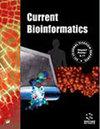A Novel Machine-learning Model to Classify Schizophrenia Using Methylation Data Based on Gene Expression
IF 2.4
3区 生物学
Q3 BIOCHEMICAL RESEARCH METHODS
引用次数: 0
Abstract
Introduction: The recent advancement in artificial intelligence has compelled medical research to adapt the technologies. The abundance of molecular data and AI technology has helped in explaining various diseases, even cancers. Schizophrenia is a complex neuropsychological disease whose etiology is unknown. Several gene-wide association studies attempted to narrow down the cause of the disease but did not successfully point out the mechanism behind the disease. There are studies regarding the epigenetic changes in the schizophrenia disease condition, and a classification machine-learning model has been trained using the blood methylation data. Method: In this study, we have demonstrated a novel approach to elucidating the molecular cause of the disease. We used a two-step machine-learning approach to determine the causal molecular markers. By doing so, we developed classification models using both gene expression microarray and methylation microarray data. Result: Our models, because of our novel approach, achieved good classification accuracy with the available data size. We analyzed the important features, and they add up as evidence for the glutamate hypothesis of schizophrenia. Conclusion: In this way, we have demonstrated explaining a disease through machine learning models.利用基于基因表达的甲基化数据对精神分裂症进行分类的新型机器学习模型
简介近年来,人工智能的发展迫使医学研究对技术进行调整。丰富的分子数据和人工智能技术有助于解释各种疾病,甚至癌症。精神分裂症是一种病因不明的复杂神经心理疾病。一些全基因关联研究试图缩小病因范围,但并未成功指出疾病背后的机制。目前已有关于精神分裂症疾病表观遗传变化的研究,并利用血液甲基化数据训练了一个分类机器学习模型。方法:在这项研究中,我们展示了一种阐明疾病分子原因的新方法。我们采用了两步机器学习法来确定致病分子标记。为此,我们利用基因表达微阵列和甲基化微阵列数据建立了分类模型。结果由于采用了新颖的方法,我们的模型在数据量有限的情况下实现了良好的分类准确性。我们分析了重要的特征,这些特征为精神分裂症的谷氨酸假说提供了证据。结论通过这种方式,我们证明了通过机器学习模型可以解释一种疾病。
本文章由计算机程序翻译,如有差异,请以英文原文为准。
求助全文
约1分钟内获得全文
求助全文
来源期刊

Current Bioinformatics
生物-生化研究方法
CiteScore
6.60
自引率
2.50%
发文量
77
审稿时长
>12 weeks
期刊介绍:
Current Bioinformatics aims to publish all the latest and outstanding developments in bioinformatics. Each issue contains a series of timely, in-depth/mini-reviews, research papers and guest edited thematic issues written by leaders in the field, covering a wide range of the integration of biology with computer and information science.
The journal focuses on advances in computational molecular/structural biology, encompassing areas such as computing in biomedicine and genomics, computational proteomics and systems biology, and metabolic pathway engineering. Developments in these fields have direct implications on key issues related to health care, medicine, genetic disorders, development of agricultural products, renewable energy, environmental protection, etc.
 求助内容:
求助内容: 应助结果提醒方式:
应助结果提醒方式:


